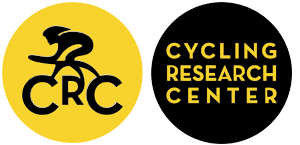Adaptive self-regulation in cycle time trials: goal pursuit, goal disengagement and the affective experience
Keywords:
goal pursuit, goal disengagement, affect, cyclingAbstract
Self-regulation research analyses behaviour and emotion through goal progress (Carver and Scheier 2013). Goal disengagement is advocated as an adaptive self-regulatory strategy for unattainable goals to reduce distress (Wrosch et al. 2003a; 2003b). In an attempt to further understand ongoing goal pursuit and emotions on endurance athletes, this paper applies adaptive self-regulation theory to interpret and explain the experiences of three cyclists in case studies which display variations in success and failure. Following criterion sampling methods we analysed positive and negative affect, goal expectancy and power output from three male participants (triathletes or cyclists; age range 26-50 yrs) who either successfully achieved their goal (Participant 1), were unsuccessful yet recalculated their goal (Participant 2) or failed to achieve their goal (Participant 3) in a 20 km laboratory cycle time trial. Post trial qualitative data provided explanations regarding pacing, perceptions of achievement and feeling states (self-chosen adjectives). Positive affect tracked goal expectancy with increases in positive affect when power output exceeded previous trial averages and goal expectations were high evidencing successful goal striving (Participant 1). Reductions in positive affect occurred where goal progress was below expectations. This reduction was dramatic in the unsuccessful trial (Participant 3). Low levels of positive affect and high levels of negative affect were reported from 12 – 20 km together with disappointment, unexpected feelings of a loss of control and fatigue, suggesting unsuccessful goal striving. Supporting goal disengagement theory, a relinquishment of goal commitment was evident for participant 2 who recalculated his goal. Despite being unsuccessful in achieving his original goal participant 2 reported positive feeling states and perceptions of control post trial indicating adaptive self-regulation strategies were effective in his specific situation. These findings emphasise the need to examine practical adaptive self-regulation strategies in sport and relationships between affect, decision making and goal striving.
Downloads
Published
How to Cite
Issue
Section
Copyright (c) 2020 Journal of Science and Cycling

This work is licensed under a Creative Commons Attribution-NonCommercial 4.0 International License.
Authors contributing to Journal of Science and Cycling agree to publish their articles under a Creative Commons CC BY-NC-ND license, allowing third parties to copy and redistribute the material in any medium or format, and to remix, transform, and build upon the material, for any purpose, even commercially, under the condition that appropriate credit is given, that a link to the license is provided, and that you indicate if changes were made. You may do so in any reasonable manner, but not in any way that suggests the licensor endorses you or your use.
Authors retain copyright of their work, with first publication rights granted to Cycling Research Center.






